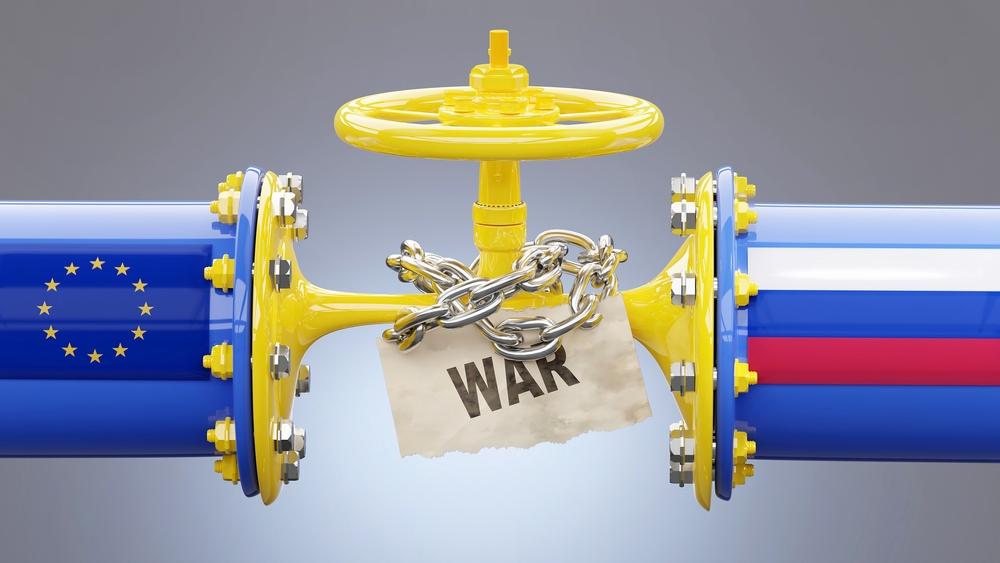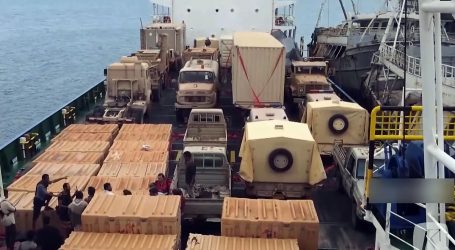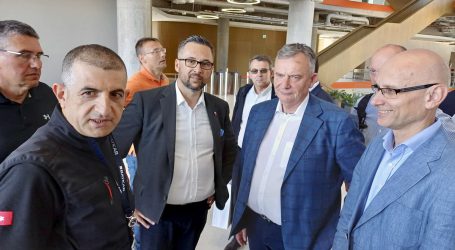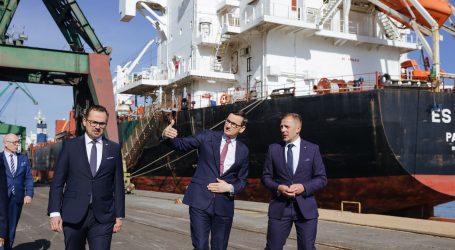EU sanctions torpedo Russia’s plans
Russia intended to become the world’s leading producer of liquefied natural gas, but EU sanctions imposed after the country’s invasion of Ukraine have torpedoed those plans, the Norwegian portal Barents Observer writes.
The fifth package of EU sanctions imposed on Russia will hit the country’s energy industry. One of the points covered by the restrictions is a ban on exports of goods such as advanced semiconductors, high-end electronics and software, but also heat exchangers, a key component of LNG plants. The export ban could eventually extend to turbines and other key equipment needed for LNG projects.
“Russia’s two largest gas companies, Novatek and Gazprom, are fully dependent on Western technology and without heat exchangers and other equipment produced abroad they cannot cope” – the portal believes.
Novatek is using technology from German company Linde in its huge Arctic LNG 2 project, currently being developed on the eastern shores of the Gulf of Obsk off the Yamal Peninsula. The gas liquefaction plant built there is to have three production lines with an annual liquefaction capacity of 6.6 million tonnes of LNG each.
Under EU rules, the sanctions also cover equipment already contracted and paid for. Western producers will have to ship goods contracted before 26 February to Russia no later than 27 May, the Kommiersant newspaper reports.
Russia has attempted to develop indigenous technology, but Novatek’s Arctic Cascade technology has not been successful, and the company announced in early 2022 that all future projects will be built using Western technology, Barents Observer recalls.
Novatek will soon complete the first part of Arctic LNG 2, which was to deliver 19.8 million tonnes of LNG to global markets. According to the CEO of France’s Total, Patrick Pouyanne, the first of the three platforms is 95 percent complete.
Total holds a 10 per cent stake in Arctic LNG 2 and a 20 per cent stake in the Yamal LNG plant on the Yamal Peninsula.
The second platform is 40 percent complete, while construction of the third platform has not yet started, “Kommiersant” reported.
The platforms are being built at the Kolsk Shipyard near Murmansk and will be towed to the production facility on the Gydan Peninsula on the Gulf of Obsk in 2023.
Russian plans for the LNG industry have so far called for the country to become the world’s largest producer by 2035 with at least 140 million tonnes a year, of which a total of 91 million tonnes is to be produced in the Arctic.
After 8 April, the effective date of the latest package of EU sanctions, Novatek will not be able to complete the second and third Arctic LNG 2 platforms, and may eventually also struggle to source the necessary spare parts for Yamal LNG, a project that was launched in late 2017.
The sanctions could also hit the Kolsk Shipyard near Murmansk, where gravity-based drilling platforms (GBS) are built. The construction of ice-class tankers under the Arctic LNG 2 project will also be affected.
Germany’s Linde said in a statement on its website that it was suspending the development of its operations in Russia in the wake of Russia’s invasion of Ukraine and was “seeking to reduce them by ceasing deliveries to certain customers and divesting industrial assets to reduce its presence in the country”.
The suspension of LNG projects means that Russia will not be able to meet its targets for the Northern Sea Route, the shortest shipping lane connecting the European part of Russia with Siberia, Barents Observer estimates. According to the country’s Arctic strategy, a total of 130 million tonnes of goods a year were to be transported along the route by 2035, and by 2024 the volume was to be at least 80 million tonnes.
source: PortalMorski.pl




